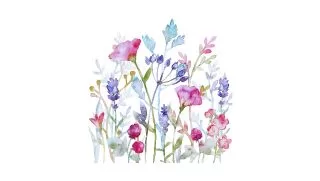Compassion Cultivation Training
Compassion isn’t heroic. It’s human and rooted in science.
The next 8-week CCT program begins Wednesday May 14th, 2025.
Zoom calls are from 5:00 to 7:00 pm Pacific time. It’s totally okay to bring your dinner if you want to. 🍽🥗
Why Cultivate Compassion?
Compassion—a step beyond empathy—is an inherent quality all humans possess. Research from neuroscience, contemplative science, and psychology shows that it is a skill and a perspective that can be cultivated and strengthened to enhance the well-being of individuals, communities, and society.
In Compassion Cultivation Training (CCT), you explore and develop practical tools and techniques that help you intentionally choose compassionate and accepting thoughts and actions. When you use these skills in everyday life, you reinforce your ability to live compassionately. This, in turn, allows you to better relate to yourself and others while building resilience and reducing burnout.
Our instinct to open our hearts to others has allowed us to adapt to changing, even challenging, circumstances and thrive. However, the seed of compassion, like any seed, needs nurturing. Compassion must be cultivated, or societal forces may prevent it from taking root and growing strong.

Compassion Training...
… is a solution that can transform lives.
Compelling evidence shows compassion training helps individuals in lasting and beneficial ways.
It’s your turn to experience how the value of compassion and compassionate behaviors ignite your sense of purpose, and lead to enhanced resilience, ease, improved health.

Cultivating Compassion
Imagine compassion as your favorite flower. Meditation and awareness help you nourish the seed and soil so the compassionate flower blossoms fully.
In addition, informally practicing compassion in daily life acts like fertilizer—it supports the flowering plant, which then has brilliant blooms that others may enjoy. The time and effort you spend cultivating compassion benefits not only you but others.
Compassion arises from an awareness of distress in self and others, an emotional resonance with that distress, and a desire to take action to help alleviate the distress.
At one time or another, we all face difficult and/or stressful situations. We all suffer in some way. Everyday stress, social pressures, and life experiences may make it difficult to fully express compassion. However, humans have a natural capacity for compassion.
Broadening beyond mindfulness, the benefits of compassion meditation are profound and numerous, not the least of which is contentment and a sense of joy that may also be infectious to our partner, family members, friends, and even co-workers.
A compassionate and accepting attitude toward self and others may noticeably reduce distress in difficult times and become a profound personal resource. An essential element to developing compassion in our lives is to make it a daily practice. When aspiring for contentment and joy, daily cultivation of compassion becomes tremendously important.
What Is Compassion Cultivation Training?
CCT is an eight-week personal and professional development course designed at Stanford University’s Center for Compassion and Altruism Research and Education. It includes practical tools and exercises designed to enhance self-awareness, compassion for self and others, and resilience.
During the eight weeks, you’ll attend weekly two-hour classes via Zoom. The format of each class includes:
- Compassion-themed lectures.
- Large and small group discussions to share perspectives and learnings relevant to the week’s theme.
- Large and small group listening and communication exercises to build compassionate interaction skills.
- Guided meditation to enhance focus and awareness.
The course content progresses from week to week, helping you build your compassion skills. Classes are not recorded for privacy reasons.
At the end of each class, you’ll have access to a guided meditation to listen to for the week to help you integrate the week’s concept into daily life. You’ll also have access to optional readings, videos, and suggestions for informal practices to help you embody what you’ve just learned so you can integrate compassion into your thoughts and actions.
This course is appropriate for those who are learning meditation for the first time or who wish to continue to develop their skills. A willingness to practice guided meditation daily is a key component of the training.
What Are the Benefits of Compassion Cultivation Training?
While everyone experiences the content uniquely, research and self-reporting have shown that CCT may help you:
- Reduce rumination and reinforce your self-awareness, ability to stay present, and effectively make appropriate choices when feeling overwhelmed.
- Enhance your well-being, contentment, and joy through a deepened ability to feel compassion and acceptance for yourself and others.
- Release mental or emotional blocks by moving toward peace and creativity while dissolving stress, anxiety, and depression.
- Increase your capacity to authentically engage, communicate, and collaborate in relationships at home, at work, and in your community.
Read 10 Scientific Benefits of Compassion Meditation for further information.
Compassion Cultivation Training course overview:
✨Week 1: Settling and focusing the mind
✨Week 2: Loving-kindness and compassion for a loved one
✨Week 3: Compassion for yourself
✨Week 4: Loving-kindness for yourself
✨Week 5: Embracing shared common humanity and developing an appreciation for others
✨Week 6: Cultivating compassion for others
✨Week 7: Active compassion practice
✨Week 8: Integrated daily compassion cultivation practice
Learn more about the CCT and the Compassion Institute here.
Registration Details
Date and Time: The program runs on Wednesday evenings from May 14th to July 9th, 2025, from 5:00 to 7:00 pm Pacific Time. We will not meet on June 4th.
Investment: Your investment for the 8-week Compassion Cultivation Training course is $320.
In addition to 16 hours of in-person class time, you will receive downloadable guided meditations and supporting materials.
To get the most out of the program, I recommend you attend at least 7 of the 8 sessions. If you know you’ll miss more than 2 sessions during the 8 weeks, please consider joining the program when you can attend at least 6 sessions. This will allow you to obtain as much information as possible and get the most out of the course.
A little bit about me…
I’m an unshakable optimist, life-long learner, teacher, and author. I’m also dedicated to helping you grow your inner strengths so you can become your most authentic self and live the life you truly want.
I first discovered qigong and compassion meditation in the early 1990s through a teacher who combines Taoism, Buddhism, and Confucianism, and I’ve followed that meditation path since. Compassion meditation and qigong are the cornerstones of what I teach. In 2011, while employed as a massage therapist at Google, I started offering a 30-minute meditation class three times per week at the Google offices, twice a week in the Washington state offices, and once a week to 16 cities around the world via video stream.
I wanted to broaden my knowledge and become a better teacher. So, in 2014, I became a facilitator for Compassion Cultivation Training (CCT) through Stanford University’s Center for Compassion and Altruism Research and Education. Ultimately, I blended aspects of CCT with my longtime Taoist practice to create my own courses, lead international spiritual tours, and wrote an Amazon bestselling book, Cultivating Compassion: Simple Everyday Practices for Discovering Peace of Mind and Resilience.
As you connect with your own joy, your inner light begins to shine. As your light shines, it automatically helps light up others. Let me help you find the strength and inner peace that inspires you to be your most compassionate self.
When I’m not meditating, facilitating courses, or traveling, you’ll find me enjoying outdoor spaces on Samish Island, WA, with my husband, Scott, and dog, Lily.
What people are saying. . .
“How do we increase the collective compassion around us? It begins with us. Self-compassion is cultivated through intentional practice. Amy Pattee Colvin expertly guides her students through the steps for developing compassion for ourselves, laying the groundwork for sharing compassion with those around us. I appreciate the practical techniques and interactive mediation practices, to assist our minds in maintaining focus. Amy is a gifted teacher exuding compassion. Give yourself the gift of compassion by taking this course. If this course were not offered online, I would not have been able to attend. The online format was effective and creates unparalleled availability.” — Connie Baker, MS, CHTP, Co-creator of the Wong-Baker FACES ® Pain Rating Scale
“This class has given me insight into the many subtle ways in which I have compromised compassion for myself. What a gift to be able to say authentically and clearly, “No, thank you.” To feel and understand that I’m not being selfish when I desire healthy alone time to recharge my batteries. To be able to say no without feeling selfish and guilt-ridden. That is the biggest gift I’ve received from this course. The second is the subtle awareness of when I’m being cynical and self-critical instead of accepting situations. knowing I can “do my best and let go of the rest” has created a great sense of freedom. I’m confident I will carry and practice these lessons learned and relearned while going forward in daily life. Thank you so much, Amy.” — P. Wenke








